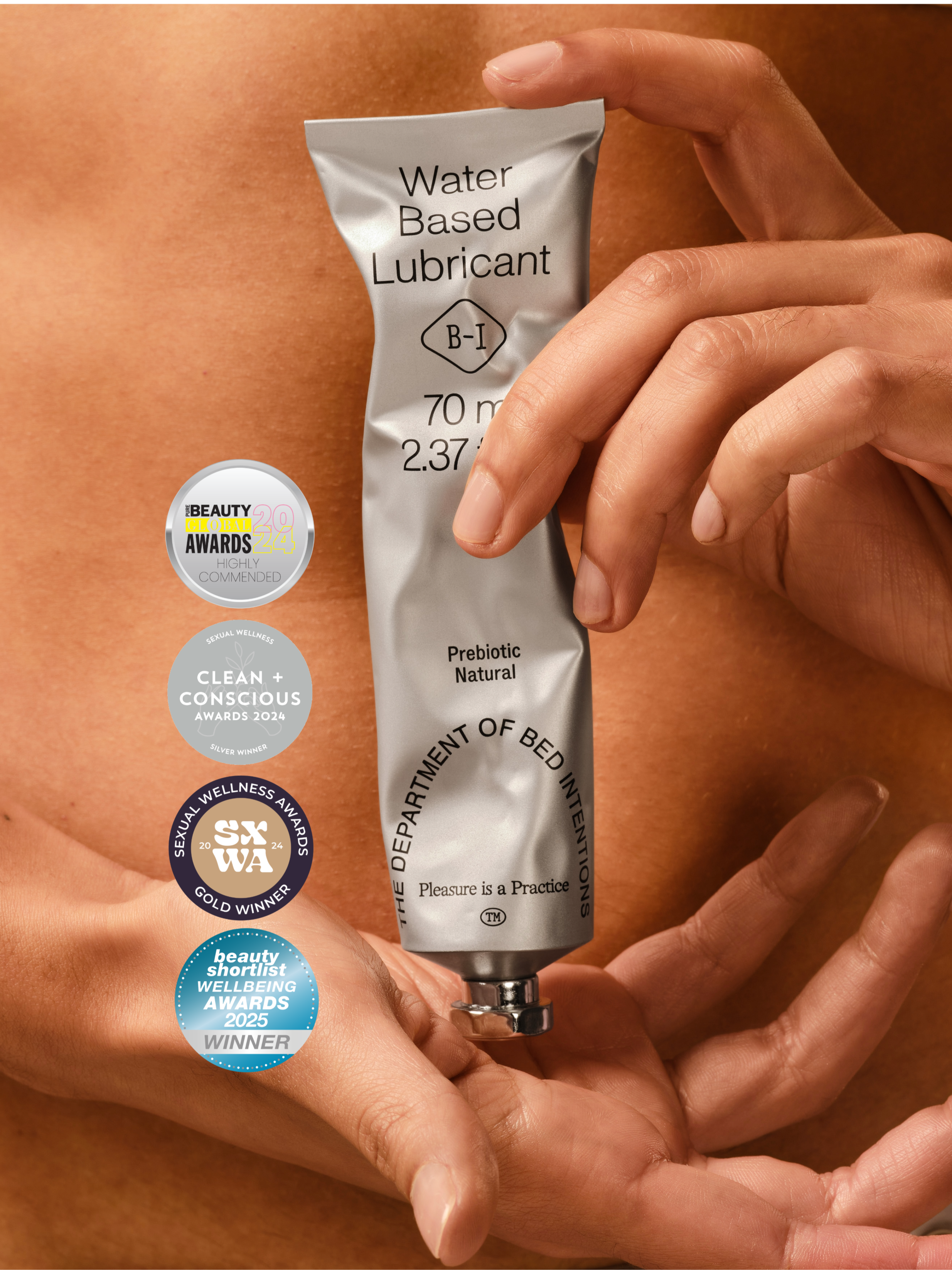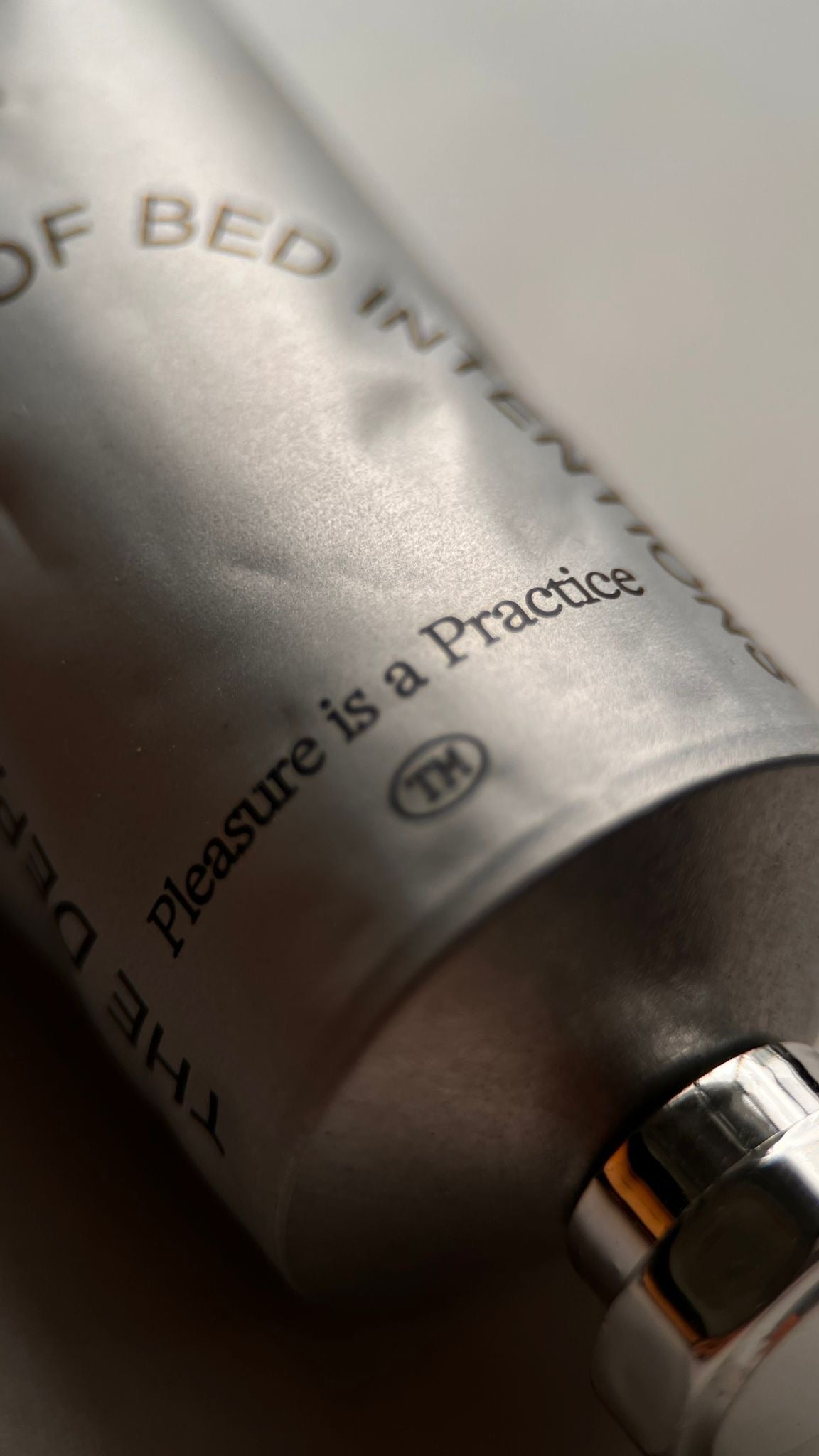But, naturally, many couples ask the question: Is lube safe for pregnancy?
Is lube safe for pregnancy and trying to conceive?
Multiple studies have shown that some commercial lubricants such as KY Jelly and Astroglide as well as saliva, are toxic to sperm. When such products are mixed with semen, they can reduce the mobility of Sperm in vitro.(1)(2)(3)(4)
Anderson Et al suggested that the decrease in mobility is likely to be due to the contrasting pH of the lubricant (<5) versus the optimum pH of sperm (7.2-8.5). Their findings have also guided clinicians to recommend light oils or higher pH lubricants among couples trying to conceive, as they seemed to cause a slightly less detrimental effect.
However, does this imply an outright cessation of lubricant use for those aspiring to conceive, or a shift toward oils if assistance is deemed necessary?

Life, fortunately, presents a more nuanced reality than the confines of a controlled laboratory setting. Numerous factors influence one's likelihood of conception beyond simply the choice of lubricant.
|
Steiner et al. delved into the matter by examining nearly 300 couples striving to conceive, discovering that despite in vitro findings suggesting caution regarding lubricant use during conception, lubricants did not hinder their chances whatsoever.
|

Interestingly, they found that among these options, oil-based lubricants exhibited a slight edge in aiding conception. (6) |
For couples earnestly seeking to optimise their chances of conception, the incorporation of an oil-based lubricant may be considered. However, it's crucial to temper expectations, as the purported increase in effectiveness remains marginal. |
What lubricants to watch out for if you’re trying to conceive.
As long as you are steering clear from lubes with spermicidal actives (look out for nonxynol-9) the likelihood of lubricants affecting your chance to conceive is marginal.
But if you really want to be sure, oil lubricants are the way to go.
_______________________________
1. Agarwal A, Deepinder F, Cocuzza M, Short RA, Evenson DP. Effect of vaginal lubricants on sperm motility and chromatin integrity: a prospective comparative study. Fertil Steril. 2008;89:375–379.
2. Frishman GN, Luciano AA, Maier DB. Evaluation of Astroglide, a new vaginal lubricant: effects of length of exposure and concentration on sperm motility. Fertil Steril. 1992;58:630–632.
3. Anderson L, Lewis SE, McClure N. The effects of coital lubricants on sperm motility in vitro. Hum Reprod. 1998;13:3351–3356.
4. Goldenberg RL, White R. The effect of vaginal lubricants on sperm motility in vitro. Fertil Steril. 1975;26:872–873.
5. Steiner AZ, Long DL, Tanner C, Herring AH. Effect of vaginal lubricants on natural fertility. Obstet Gynecol. 2012 Jul;120(1):44-51. doi: 10.1097/AOG.0b013e31825b87ae. PMID: 22914390; PMCID: PMC3427535.
6. McInerney KA, Hahn KA, Hatch EE, Mikkelsen EM, Steiner AZ, Rothman KJ, Sørensen HT, Snerum TM, Wise LA. Lubricant use during intercourse and time to pregnancy: a prospective cohort study. BJOG. 2018 Nov;125(12):1541-1548. doi: 10.1111/1471-0528.15218. Epub 2018 Apr 15. PMID: 29543376; PMCID: PMC6139089.





